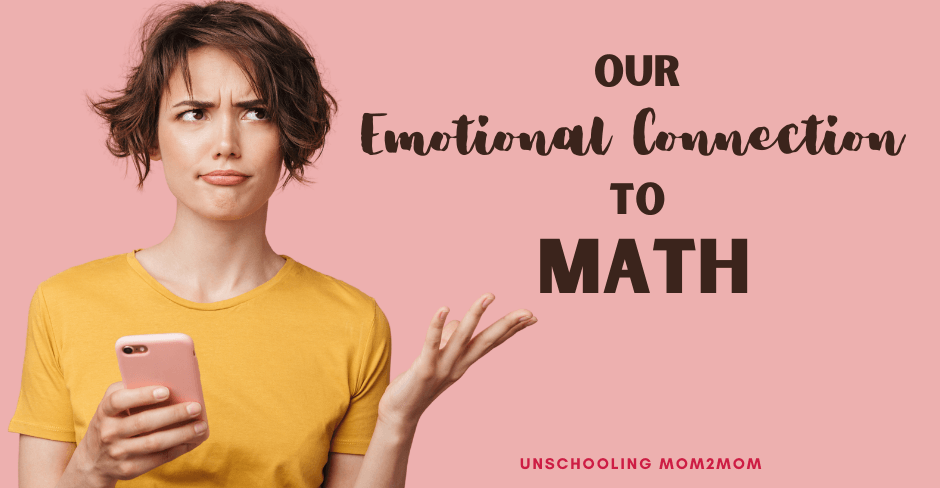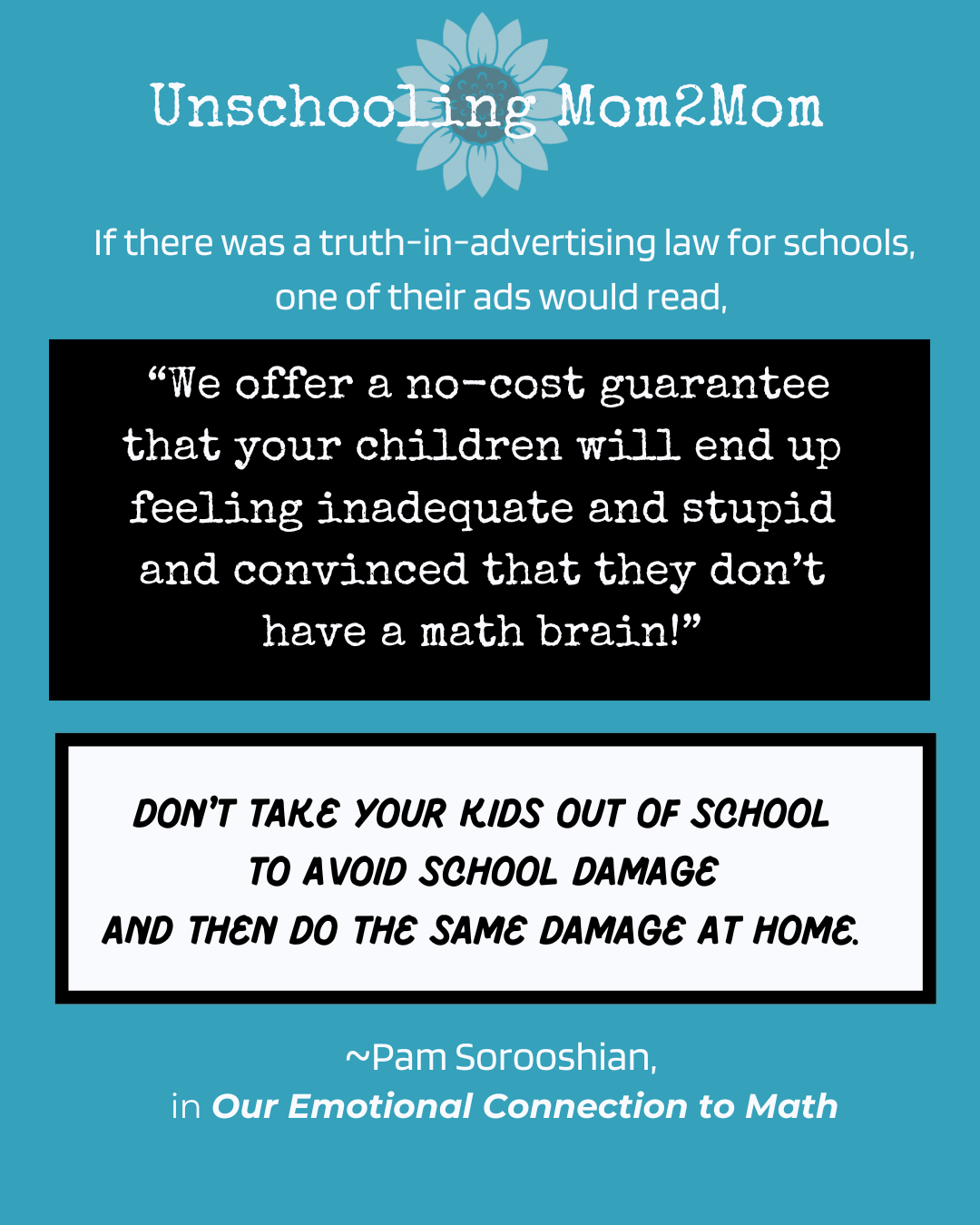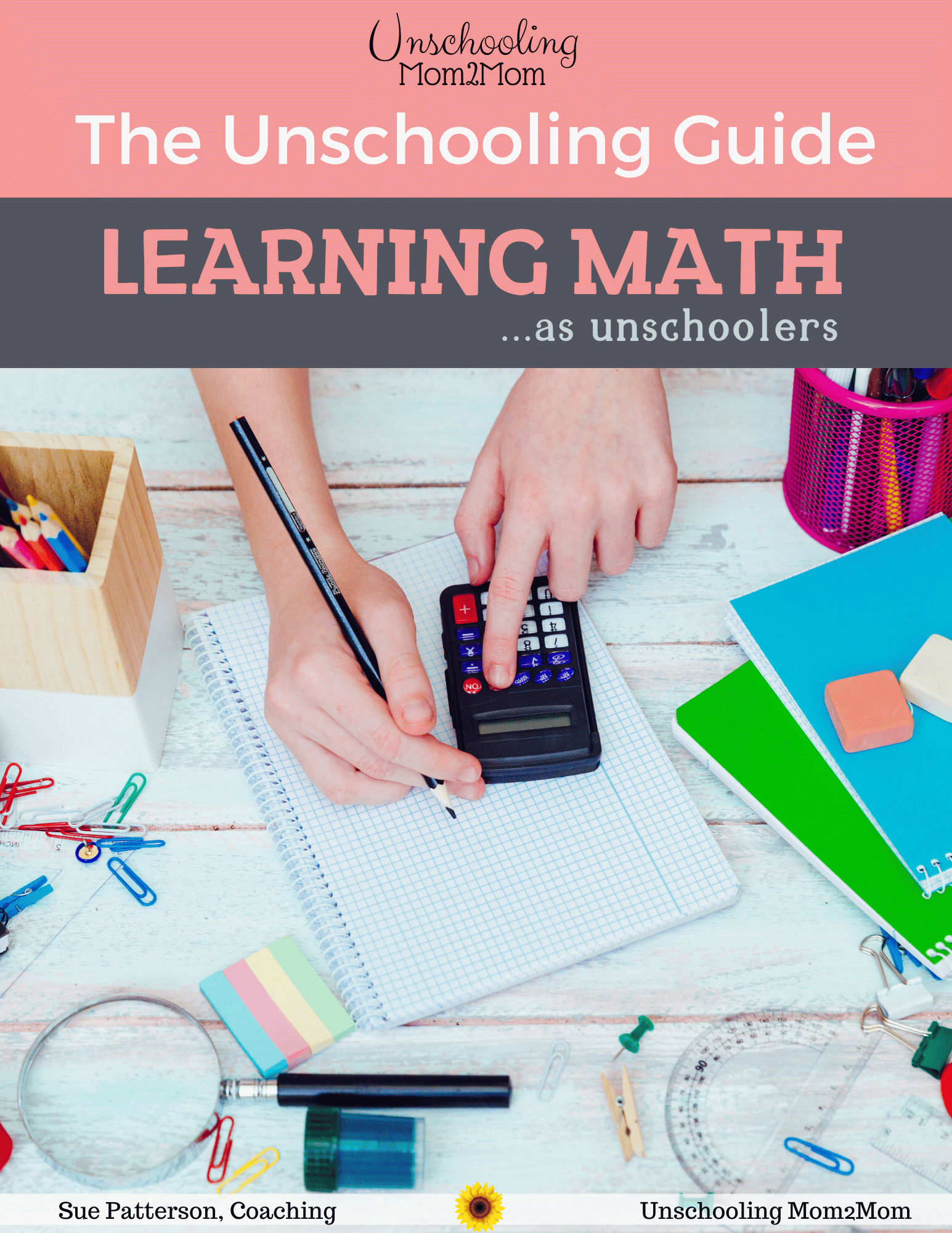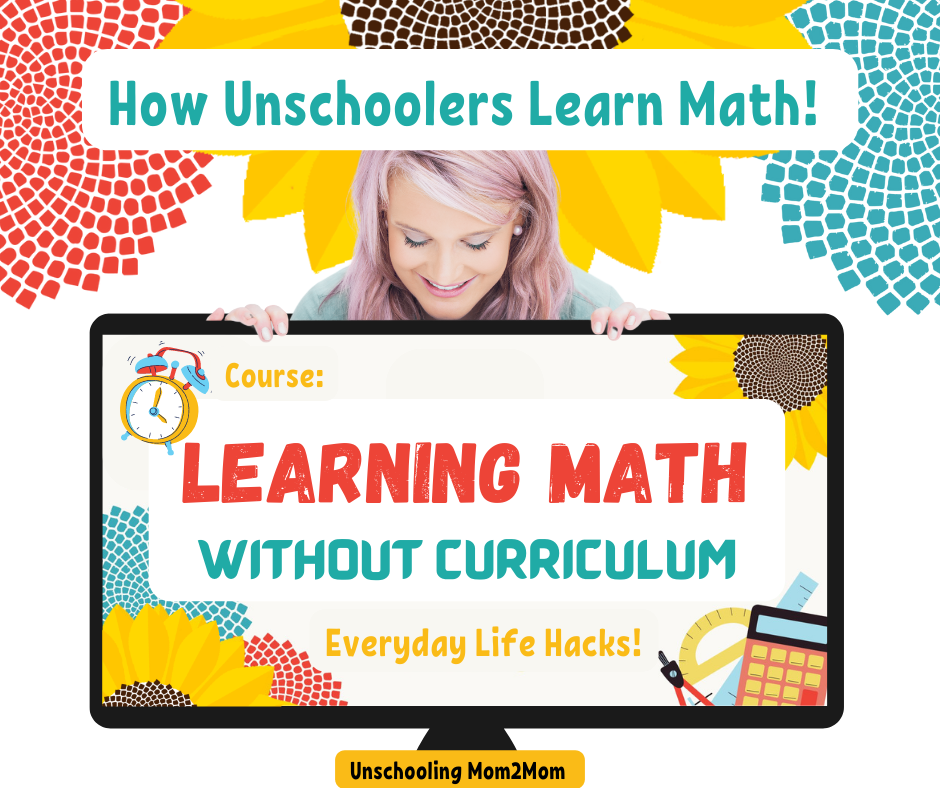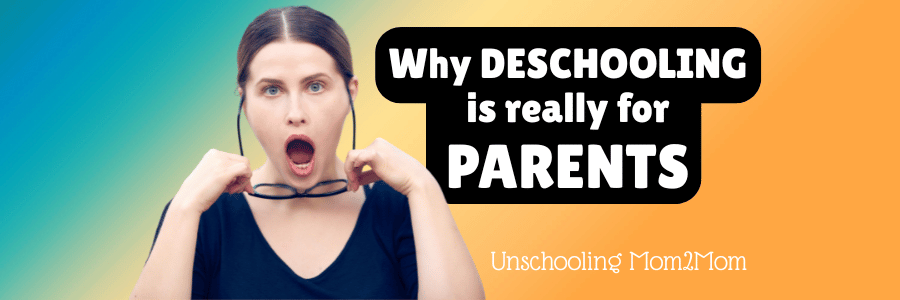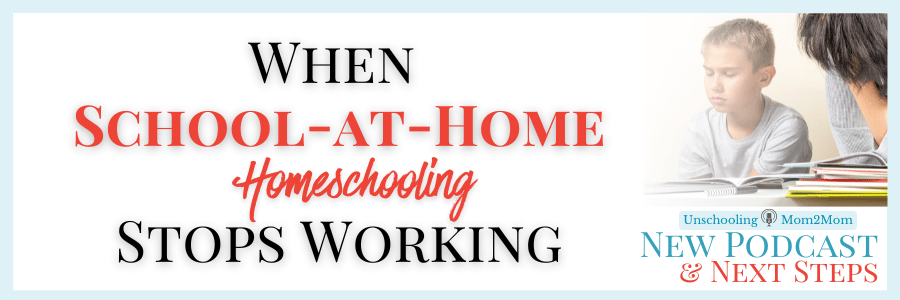The Emotional Connection to Math
Pam Sorooshian, economist and longtime unschooler, helps us see how we may be causing our own problems with math - and passing them onto our children! This article was first published in 2015 through the Homeschooler Post , and is as valid today as it was then! Pam's blog is Learning Happens.
The most important thing for homeschooling parents to know about math is not how to divide fractions or use the quadratic formula - it is that math difficulties have emotional roots.
In his research, Dr. Joseph Warren, author of the book Mind Over Math , found that people learn math more quickly if they also discuss their feelings about it. But what do feelings have to do with math? If you regularly talk about math (like I do), you’ll hear a whole lot of feelings expressed - mostly moans and groans. People frequently say they hate it, it stresses them out or it makes them feel stupid. Homeschooling parents often report worrying about teaching math to their children. In fact, there is so much math anxiety out there that long-time math educator Marilyn Burns calls it “national phobia.”
Two Quick Unschooling Math Resources
Think about how you learn best? Do you like to read through it all in a handy downloadable PDF?
Or would you prefer to have a couple videos from me, quickly walking you through the materials?
Both include:
- Practical suggestions for how YOU see math
- Journaling Prompts
- Math Games & Suggestions
- Ways to see your home in a more math-friendly way
- An Actual Strategy to help you overcome Math Anxiety!
Don't pass your math insecurities on to your kids - let me help you do something about it!
What is a homeschooling parent to do?
Remembering that math difficulties have emotional roots, the question is how to avoid planting the seeds that eventually grow into negative math experiences and emotional blockages. Homeschooling parents often engage in an endless search for the perfect math curriculum, hoping to stumble upon the perfect program for their child. In the meantime, children grow up in a math-phobic society, and many a child throws down his or her pencil in frustration and groans (or yells),
“I hate math!"
But why? Why is such a seemingly non-emotional subject actually so fraught with emotions? What IS it about math? And is there a solution?
Unfortunately, there is no single solution. Yes, there are better and worse math programs, but that perfect curriculum not only does not exist, it will never be developed. That is because, no matter what math program you use (if any), there are beliefs and practices common in our society that work against you being able to instill “math comfort” in your child instead of math anxiety. Fortunately, awareness of these damaging beliefs and practices will allow you to avoid them as much as possible.
The most damaging belief is the one that says,
“Math is harder than other subjects, and only a few people can be good at it.”
This is exactly what most students learn and what most parents believe.
In fact, if there was a truth-in-advertising law for schools, one of their ads would read, “We offer a no-cost guarantee that your children will end up feeling inadequate and stupid and convinced that they don’t have a math brain!”
Don’t take your kids out of school to avoid school damage and then do the same damage at home.
But does your child really have a math brain? There are mathematical prodigies - children whose brains are wired such that parents find themselves more concerned with how to feed their mathematical interest than with it being crushed. Those are the young Mozarts of math. But the existence of a Mozart doesn’t mean the rest of us are musically (or mathematically) stupid and shouldn’t enjoy or develop competency in it. The math we’re talking about is not harder than speaking a language, reading, writing, or even playing soccer or piano, painting or most of the other things our children learn.
We make it difficult!
- We teach abstract material too soon to children still operating in concrete developmental stages.
- We break that material down into too-small pieces that offer no sense of context or usefulness.
- Math classes or programs move too quickly and do not allow time for full understanding.
- We use methods that promote memorization of algorithms over problem solving and emphasize right answers over investigation.
- We teach that there is just one right way to solve any problem, assign primarily out-of-context drills and assess knowledge of mechanics but not understanding.
Children are naturally curious about numbers, measurements and patterns, and they happily enjoy exploring them outside of formal education. Frank Smith, author of The Book of Learning and Forgetting , points out the important role both positive and negative emotions play in learning when he says: “Children are not empty vessels into which teachers pour selected skills and nuggets of knowledge. Rather, it is in the child’s nature to express and develop innate intellectual capacities, integrating all experiences...that includes hopes and fears, loves and hates, beliefs and, and attitudes towards other people and towards himself.”

